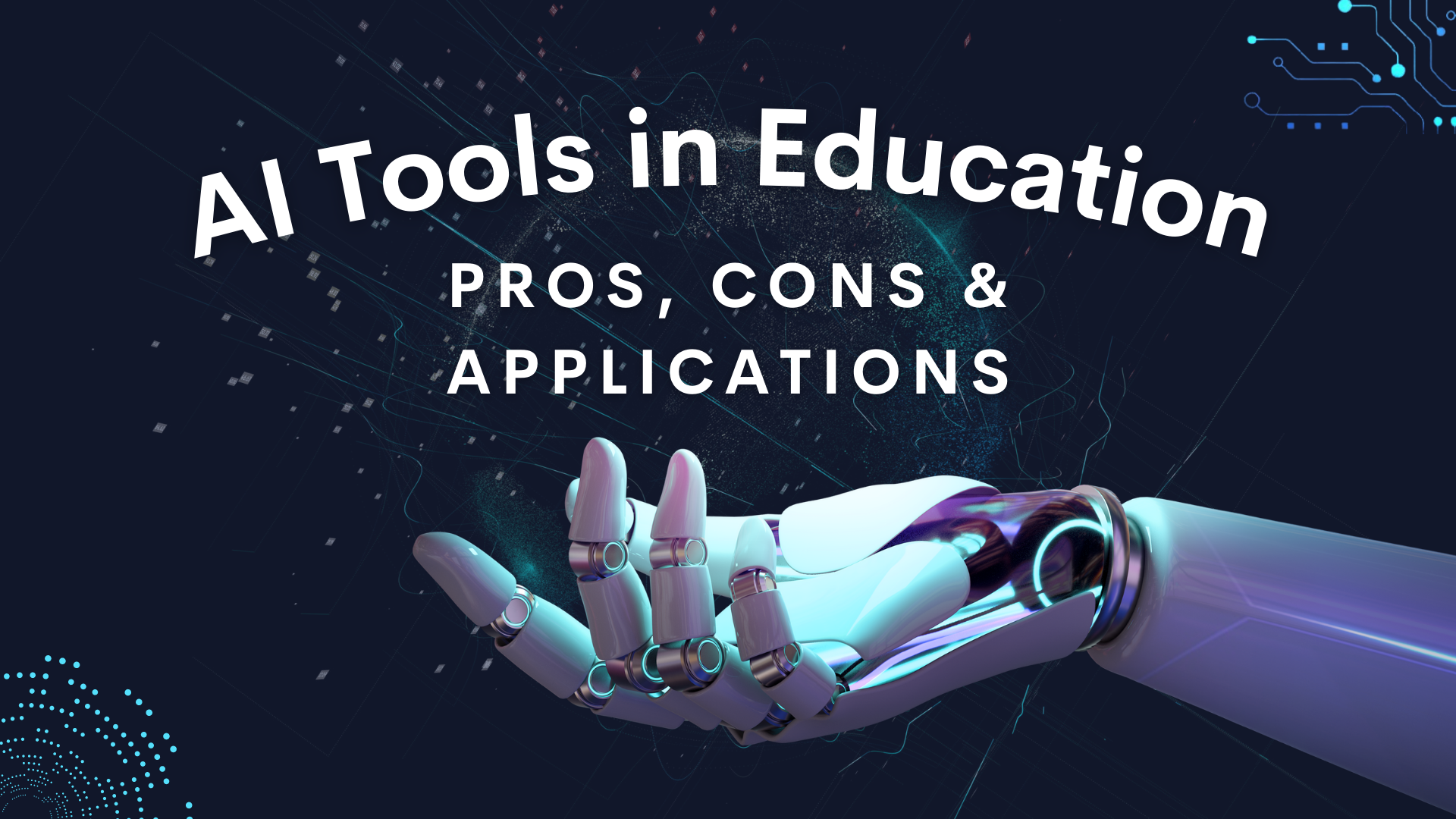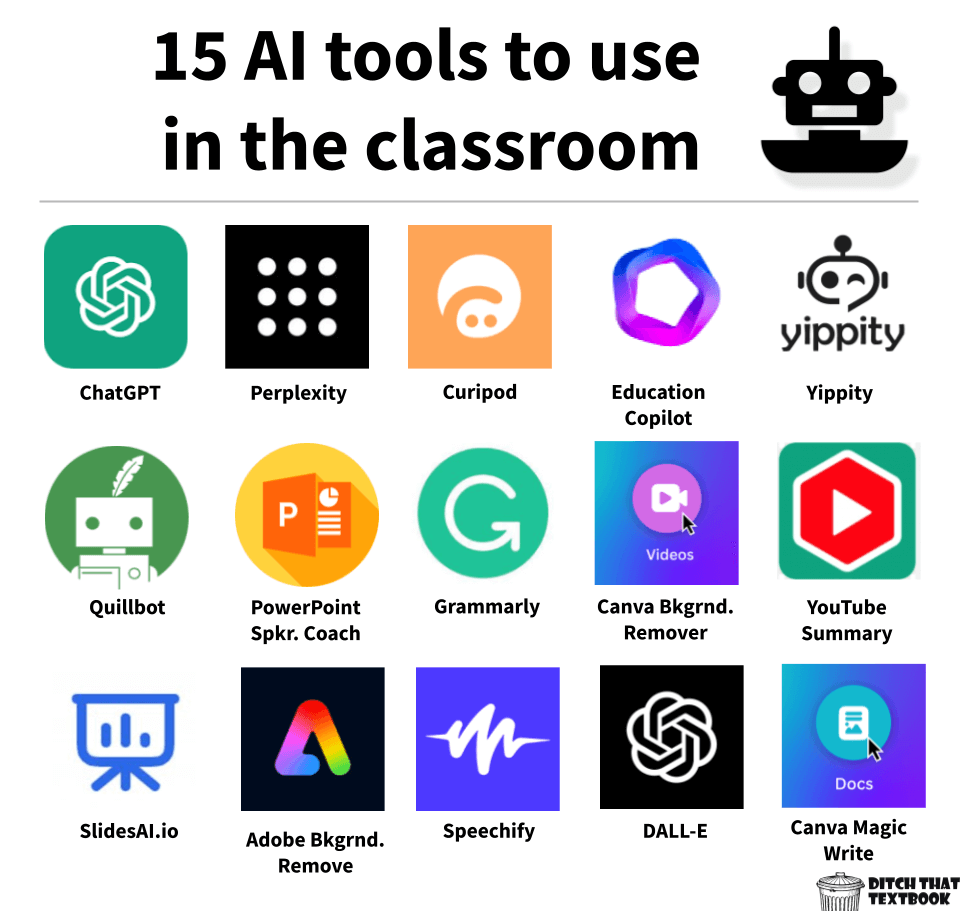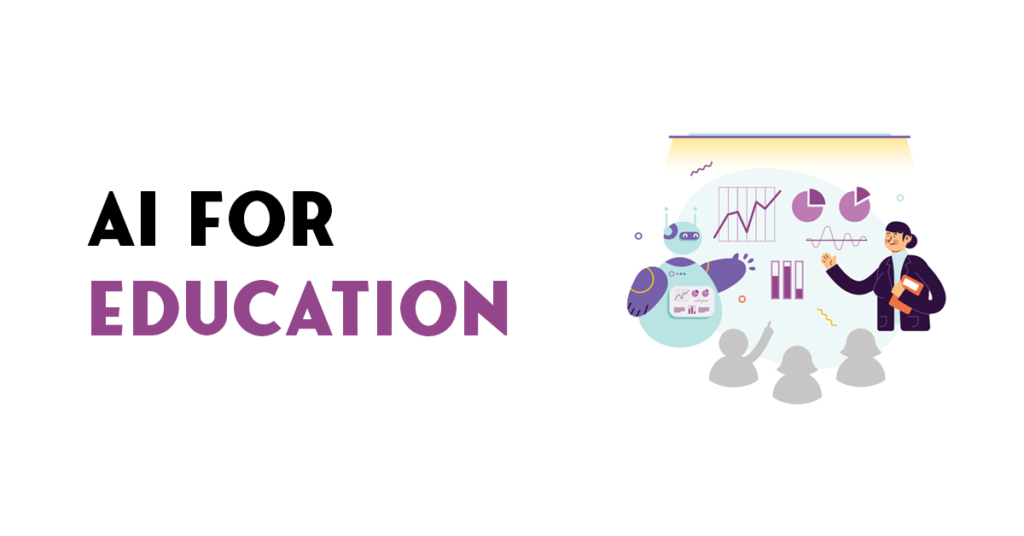AI tools in education include ChatGPT, Khan Academy, and Duolingo. These tools enhance learning through personalized and interactive experiences.
AI tools revolutionize education by providing personalized learning experiences and automating administrative tasks. ChatGPT, for instance, aids in tutoring and answering student queries with human-like responses. Khan Academy’s AI-powered tools offer tailored learning paths, helping students grasp concepts more effectively.
Duolingo uses AI to adapt language lessons to individual learner’s pace and proficiency. AI tools can also grade assignments, track student progress, and create interactive content, making education more engaging and efficient. These technologies not only support teachers in delivering better instruction but also empower students to take control of their learning journeys. Adopting AI in education promises a more personalized and efficient future for learning.
The Rise Of Ai In Education
The integration of AI tools in education is transforming classrooms. These technologies are not just futuristic concepts; they are here now, revolutionizing how teachers teach and students learn. AI’s role in education is expanding rapidly, presenting new opportunities and challenges.
Shifting The Educational Paradigm
AI is shifting the educational paradigm by providing personalized learning experiences. Traditional teaching methods often follow a one-size-fits-all approach, but AI tailors lessons to individual student needs. This personalized approach helps students grasp concepts more effectively.
Another significant change is the automation of administrative tasks. AI tools can handle grading, attendance tracking, and scheduling, freeing up more time for teachers to focus on instruction. This shift allows educators to spend more time engaging with students and less time on paperwork.
AI also introduces innovative teaching aids. Virtual tutors and interactive simulations make learning more engaging and fun. These tools can adapt to the learning pace of each student, ensuring no one falls behind.
Key Benefits For Teachers And Students
The use of AI in education offers numerous benefits for both teachers and students. Here are some key advantages:
- Personalized Learning: AI customizes lessons to fit individual student needs, enhancing understanding and retention.
- Efficiency: Automated administrative tasks save time, allowing teachers to focus more on teaching.
- Engagement: Interactive AI tools make learning more engaging and enjoyable for students.
- Accessibility: AI provides educational resources that can be accessed anytime, anywhere, breaking down geographical barriers.
- Support for Teachers: AI offers tools that help teachers create better lesson plans and assess student performance accurately.
To illustrate these benefits, consider the following table:
| Benefit | Description |
|---|---|
| Personalized Learning | AI tailors lessons to individual student needs. |
| Efficiency | Automates administrative tasks, saving teachers’ time. |
| Engagement | Interactive tools make learning fun and engaging. |
| Accessibility | Resources accessible anytime, anywhere. |
| Support for Teachers | Helps in creating better lesson plans and assessments. |
In summary, AI tools in education are creating a transformative shift, making learning more personalized, efficient, engaging, and accessible. This revolution benefits both teachers and students, paving the way for a more effective educational experience.
Ai-powered Learning Platforms
AI-powered learning platforms are revolutionizing education. These tools use artificial intelligence to create more engaging and personalized learning experiences. They can adapt to the needs of each student, making learning more effective and enjoyable.
Adaptive Learning With Ai
Adaptive learning is a game-changer in education. AI can analyze a student’s performance and adjust the difficulty of tasks accordingly. This ensures that students are always challenged but not overwhelmed.
For instance, platforms like Khan Academy use AI to tailor lessons. If a student struggles with a concept, the AI provides additional resources. If the student excels, the AI offers more advanced materials.
| Platform | Feature | Benefit |
|---|---|---|
| Khan Academy | Tailored Lessons | Personalized learning pace |
| Duolingo | Adaptive Language Learning | Improves language skills at individual pace |
Customized Student Experiences
AI-powered learning platforms offer customized student experiences. These tools can create personalized learning paths based on each student’s interests and needs.
For example, Cognii provides AI-driven tutoring. It engages students in one-on-one conversations, making learning interactive and fun. Similarly, Quizlet uses AI to generate customized quizzes, helping students focus on areas that need improvement.
- Cognii: AI-driven tutoring for interactive learning
- Quizlet: AI-generated quizzes for targeted practice
Virtual Tutors And Assistants
Virtual tutors and assistants have revolutionized education. They provide interactive and personalized learning experiences. With AI, students can access help anytime and anywhere. This has transformed traditional learning methods.
24/7 Learning Support
Students can now receive help around the clock. AI-powered virtual tutors are available 24/7. They provide support beyond classroom hours. This ensures continuous learning and progress.
Virtual tutors offer explanations, answer questions, and provide practice problems. Students can learn at their own pace. This flexibility is key to better understanding and retention.
- Access to learning materials anytime
- Immediate answers to questions
- Flexible learning schedule
Personalized Feedback Systems
AI tools provide personalized feedback. They analyze each student’s performance. Then, they give tailored suggestions for improvement. This helps in addressing individual learning needs.
Personalized feedback is crucial for effective learning. It highlights strengths and areas for improvement. Students can focus on what they need to improve.
Here’s a table showing some AI tools providing personalized feedback:
| AI Tool | Features |
|---|---|
| Khanmigo | Interactive tutoring and debate partner |
| Gradescope | Automated grading and feedback |
| Cognii | AI-based tutoring and feedback |
Virtual tutors and assistants support students in their learning journey. They provide continuous help and personalized feedback. These AI tools are essential in modern education.

Credit: atomisystems.com
Automated Grading And Assessment
AI tools are transforming education by automating grading and assessment. These tools save time and ensure fair evaluation. Learn how they improve efficiency and provide objective scoring.
Efficiency In Evaluating Work
AI-powered tools can quickly evaluate large volumes of student work. Teachers no longer need to manually grade every assignment. This saves valuable time that can be used for teaching and supporting students.
Consider a scenario where 100 essays need grading. An AI tool can assess all essays within minutes, identifying key points and common errors. This allows for faster feedback to students, helping them learn and improve quickly.
| Traditional Grading | AI Grading |
|---|---|
| Time-consuming | Time-efficient |
| Subjective | Objective |
| Inconsistent | Consistent |
Objective Scoring Methods
AI tools use objective algorithms to grade assignments. This reduces biases that can occur with human grading. Every student is evaluated based on the same criteria, ensuring fairness.
For example, an AI tool can analyze grammar, spelling, and content quality in a student’s essay. It can then provide a detailed score and feedback, pointing out areas for improvement. This method ensures that all students are graded equally.
- Fair evaluation
- Consistent scoring
- Detailed feedback
Interactive Language Learning Tools
Interactive language learning tools are transforming the way students learn new languages. These tools leverage AI to provide personalized learning experiences. They offer engaging methods to practice and enhance language skills.
Enhancing Language Proficiency
AI-driven tools help students improve their language proficiency. These tools provide instant feedback, which helps in faster learning.
- Grammar Checkers: Tools like Grammarly correct mistakes and explain grammar rules.
- Vocabulary Builders: Apps like Memrise use spaced repetition to help students remember new words.
- Pronunciation Guides: Apps like ELSA Speak offer pronunciation correction and practice.
These tools use AI to adapt to each student’s learning style. This makes learning more effective and enjoyable.
Conversational Ai For Practice
Conversational AI tools simulate real-life conversations. This provides a practical way to practice speaking skills.
Some popular conversational AI tools include:
- Duolingo: Offers conversation practice with AI characters.
- Rosetta Stone: Uses AI to simulate real-world conversations.
- Babbel: Provides dialogue-based lessons with instant feedback.
Conversational AI helps students become more confident in their speaking abilities. It also helps reduce the fear of making mistakes in real conversations.
Ai In Classroom Management
AI tools are transforming education by making classroom management more efficient. They help teachers handle administrative tasks and enhance classroom interactions. Let’s explore how AI makes classroom management easier.
Streamlining Administrative Tasks
AI tools can handle repetitive administrative tasks, saving time for teachers. Automated attendance systems can mark students present or absent. Grading software can evaluate assignments and provide instant feedback.
Here’s a table showing AI tools for administrative tasks:
| Task | AI Tool |
|---|---|
| Attendance | ClassDojo, Schoology |
| Grading | Gradescope, Turnitin |
Facilitating Classroom Interactions
AI can also enhance classroom interactions. Interactive chatbots can answer student questions anytime. Virtual assistants can help with lesson plans and resource recommendations.
Here are some AI tools for better classroom interactions:
- Chatbots: Answer student questions in real-time.
- Virtual Assistants: Help teachers with lesson plans and resources.
Using AI in classroom management makes teaching more efficient and engaging. Teachers can focus more on teaching while AI handles the rest.
Content Creation And Curation
In the digital age, AI tools have revolutionized content creation and curation in education. These tools provide educators with innovative ways to generate, customize, and manage educational materials. Let’s delve into how AI can create engaging and personalized learning experiences.
Ai-generated Educational Material
AI can generate a variety of educational materials quickly and efficiently. This includes creating quizzes, lecture notes, and even interactive simulations.
| Type of Material | AI Tool |
|---|---|
| Quizzes | Quizlet |
| Lecture Notes | Notion AI |
| Interactive Simulations | Labster |
Custom Curriculum Development
Custom curriculum development is another area where AI shines. Educators can use AI to tailor learning experiences based on individual student needs. This allows for a more personalized approach to education.
- AI analyzes student data to identify learning gaps.
- It suggests resources to address those gaps.
- Educators can easily adjust the curriculum based on AI recommendations.
This personalized approach ensures that students receive the support they need to succeed.
Data-driven Insights And Analytics
AI tools offer unparalleled data-driven insights and analytics. These tools help educators make informed decisions based on real-time data. This ensures that every student gets the attention they need. Data analytics in education also helps in understanding student performance and behavioral patterns. This information is crucial for tailoring educational experiences to individual needs.
Monitoring Student Progress
AI tools excel at monitoring student progress. They track attendance, grades, and participation. This helps teachers identify students who may need extra help. Real-time dashboards provide immediate insights into each student’s journey. These dashboards are easy to read and understand.
| AI Tool | Feature | Benefit |
|---|---|---|
| Khan Academy | Progress Tracking | Personalized Learning Paths |
| Gradescope | Automated Grading | Instant Feedback |
| Duolingo | Language Learning | Adaptive Learning Techniques |
Informing Instructional Strategies
AI tools are invaluable for informing instructional strategies. They analyze student data to suggest the best teaching methods. This ensures lessons are effective and engaging. Predictive analytics can forecast which students might struggle, allowing for proactive intervention.
- Adaptive Learning: Customizes lessons based on student performance.
- Interactive Content: Engages students through multimedia resources.
- Feedback Mechanisms: Provides instant feedback to both students and teachers.
AI-driven insights also help in curriculum development. Teachers can adapt the curriculum based on what works best for their students. This makes learning more efficient and enjoyable.
- Analyze student performance data.
- Identify areas for improvement.
- Implement targeted instructional strategies.
Ethical Considerations And Challenges
AI tools are revolutionizing education by offering personalized learning experiences and automating administrative tasks. Despite these benefits, ethical considerations and challenges must be addressed to ensure these tools are used responsibly. This section explores two major areas of concern: Privacy and Data Security and Addressing Bias and Equity.
Privacy And Data Security
Privacy and data security are critical in the use of AI tools in education. Students’ personal information is often collected and processed by these tools. This raises concerns about how this data is stored, used, and protected.
Schools and educators must ensure that data collection practices comply with legal standards such as the General Data Protection Regulation (GDPR) and the Family Educational Rights and Privacy Act (FERPA). Implementing robust data encryption methods and access controls can help mitigate risks.
| Consideration | Details |
|---|---|
| Data Encryption | Ensures that student data is protected during transmission and storage. |
| Access Controls | Limits who can access sensitive student information. |
| Compliance | Adheres to legal standards like GDPR and FERPA. |
Addressing Bias And Equity
AI algorithms can unintentionally perpetuate bias, leading to unfair treatment of certain student groups. It’s crucial to ensure that AI tools promote equity in education.
Developers should focus on creating inclusive algorithms that are free from bias. Regular audits and testing for fairness can help identify and mitigate potential biases.
- Inclusive Algorithms: Design algorithms that consider diverse student needs.
- Fairness Testing: Regularly test AI systems for biases.
- Continuous Monitoring: Keep an eye on AI performance to ensure ongoing equity.
Addressing these ethical concerns is essential for the responsible use of AI in education. By focusing on privacy, data security, and equity, educators can harness the power of AI while safeguarding students’ rights.

Credit: www.educationalinnovation360.com
Future Of Ai In Education
The integration of AI tools in education is transforming the learning landscape. These technologies offer new ways to personalize education, enhance learning experiences, and streamline administrative tasks. As AI continues to evolve, its impact on education will become even more profound.
Emerging Technologies And Innovations
Several emerging technologies are poised to revolutionize education. These innovations promise to make learning more interactive and accessible.
- AI-Powered Tutoring Systems: Provide personalized learning experiences by adapting to the student’s pace and level.
- Virtual Reality (VR) and Augmented Reality (AR): Create immersive learning environments that can simulate real-world scenarios.
- Adaptive Learning Platforms: Use AI to tailor educational content to meet individual student needs.
- Intelligent Content Creation: Automatically generate educational materials, quizzes, and assignments.
| Technology | Key Feature | Benefit |
|---|---|---|
| AI-Powered Tutoring Systems | Personalized Learning | Adapts to student’s pace |
| VR and AR | Immersive Learning | Simulate real-world scenarios |
| Adaptive Learning Platforms | Tailored Content | Meets individual needs |
| Intelligent Content Creation | Automated Materials | Generates quizzes and assignments |
Preparing For A Tech-integrated Future
To prepare for a tech-integrated future, educators and institutions must embrace these advancements. This involves integrating AI tools into curricula and training teachers to use these technologies effectively.
- Curriculum Integration: Incorporate AI tools into lesson plans and activities.
- Teacher Training: Provide professional development opportunities focused on AI and emerging technologies.
- Infrastructure Development: Invest in the necessary hardware and software to support AI tools.
- Continuous Assessment: Regularly evaluate the effectiveness of AI tools in enhancing learning outcomes.
By adopting these strategies, educational institutions can stay ahead of the curve and ensure that students are well-prepared for the future.

Credit: ditchthattextbook.com
Frequently Asked Questions
What Are Ai Tools For Education?
AI tools for education include platforms like Khan Academy, Duolingo, and Gradescope. These tools assist in personalized learning, automate grading, and provide interactive content to enhance the learning experience.
How Does Ai Improve Personalized Learning?
AI improves personalized learning by adapting educational content to individual student needs. It analyzes student performance and customizes lessons to address specific strengths and weaknesses, making learning more effective.
Can Ai Tools Help With Grading?
Yes, AI tools like Gradescope can help with grading. They automate the grading process, provide instant feedback, and reduce the workload for educators, ensuring faster and more accurate assessments.
Are Ai Chatbots Useful In Education?
AI chatbots are useful in education for providing instant support. They can answer student queries, offer tutoring, and assist with administrative tasks, enhancing the overall educational experience.
Conclusion
Harnessing AI tools in education can transform learning experiences. These tools enhance engagement and streamline teaching methods. Embracing AI in the classroom fosters personalized learning and efficient administration. Stay ahead by integrating these innovative technologies into your educational practices. Empower students and educators alike with AI-driven solutions.
